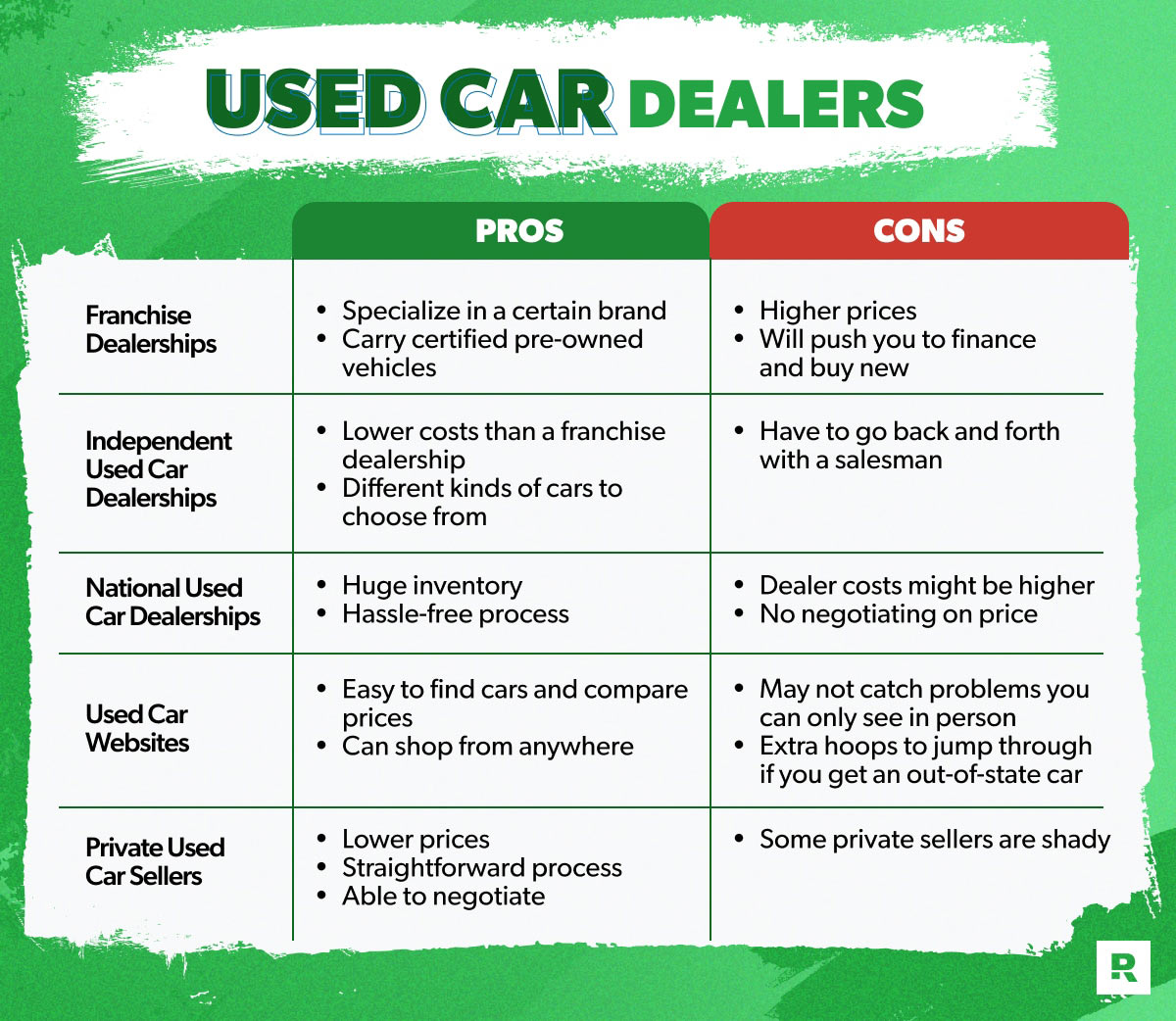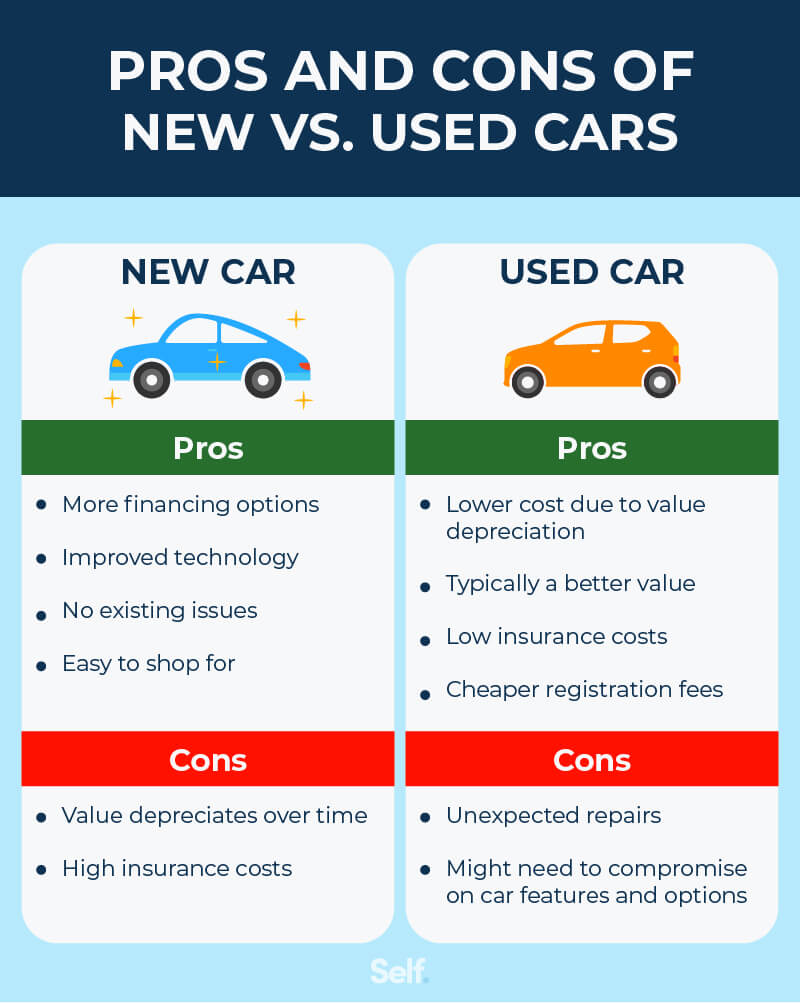Buying a used car has its advantages and disadvantages. Many people consider this option for various reasons, including cost savings.
Used cars can be a smart choice for budget-conscious buyers. They often come with a lower price tag compared to new ones. However, there are potential drawbacks to be aware of. Understanding the pros and cons can help you make an informed decision.
This blog post will explore both sides, giving you a clear picture of what to expect. Whether you’re a first-time buyer or looking to replace your current vehicle, this guide will provide valuable insights. Read on to discover the benefits and challenges of purchasing a used car.
Introduction To Used Cars
Buying a car can be a big decision. Many people wonder if they should buy a new car or a used car. This blog will help you understand the pros and cons of used cars. We will look at why you might choose a used car. We will also check out market trends.
Why Consider Used Cars?
There are many reasons to think about buying a used car:
- Cost: Used cars are often cheaper than new cars. This can help you save money.
- Depreciation: New cars lose value quickly. Used cars do not depreciate as fast.
- Insurance: Insurance for used cars is usually cheaper.
- Variety: You have a wide range of makes and models to choose from.
Many buyers find these reasons compelling. They prefer the financial benefits. Others enjoy having more options to select from.
Market Trends
The market for used cars is always changing. Here are some trends:
| Trend | Description |
|---|---|
| Rising Prices | Used car prices have been going up. This is due to high demand. |
| Online Sales | Many people now buy used cars online. This makes it easier to compare prices. |
| Certified Pre-Owned | More dealers offer certified pre-owned cars. These cars come with warranties. |
Understanding these trends can help you make a smart choice. Stay informed. Make the best decision for your needs.

Credit: www.ramseysolutions.com
Benefits Of Buying Used Cars
Buying a used car can be a smart decision for many reasons. From saving money to having a wide variety of options, there are multiple benefits to consider. Let’s dive into some of the key advantages.
Cost Savings
One of the most significant benefits of purchasing a used car is the cost savings. New cars lose a large amount of their value as soon as they are driven off the lot. With a used car, you avoid this initial depreciation and can often find great deals.
- Lower purchase price
- Reduced registration fees
- Lower insurance premiums
These factors make used cars more affordable. You get more value for your money.
Lower Depreciation
New cars lose value quickly in the first few years. In contrast, used cars depreciate at a slower rate. This means your used car retains its value longer, which is an excellent advantage for resale.
| Year | New Car Depreciation (%) | Used Car Depreciation (%) |
|---|---|---|
| 1 | 20% | 10% |
| 3 | 40% | 25% |
| 5 | 60%</td | 35% |
As the table shows, used cars depreciate at a slower pace. This helps maintain their resale value better than new cars.
Variety Of Choices
When buying used, you have a vast array of options. You can choose from different models, makes, and years. This diversity helps you find a car that fits your needs and budget.
- Wide range of makes and models
- Different price ranges
- Various features available
This variety ensures you find a car that suits your style. It also helps you get the best deal possible.
Drawbacks Of Buying Used Cars
Buying a used car has its benefits. Yet, there are significant drawbacks that buyers must consider. These potential issues can impact your decision and ownership experience. Let’s explore some of the key drawbacks.
Potential Hidden Issues
Used cars often come with hidden problems. Previous owners might not disclose all issues. This could mean expensive repairs later. Common hidden issues include engine troubles or faulty transmissions. An unexpected breakdown can be frustrating and costly.
Limited Warranty
New cars usually come with a comprehensive warranty. Used cars, on the other hand, may have limited or no warranty. This means you might have to pay for repairs out of pocket. Limited warranties often cover fewer components. This could lead to higher maintenance costs.
Higher Interest Rates
Financing a used car often comes with higher interest rates. Lenders consider used cars riskier investments. This can result in more expensive monthly payments. Over time, higher interest rates increase the total cost of the car. It’s essential to factor this into your budget.
Evaluating A Used Car
Buying a used car can be a smart choice. It often saves money and provides great value. Yet, it requires careful evaluation. Knowing what to look for ensures you get a reliable vehicle. Here are some key aspects to consider when evaluating a used car.
Vehicle History Report
A vehicle history report is crucial. It reveals past accidents, title issues, and service records. Checking this report helps you avoid cars with hidden problems. Obtain the report from reputable sources like Carfax or AutoCheck. Look for any red flags such as multiple owners or frequent repairs.
Mechanical Inspection
Have a trusted mechanic inspect the car. This step can uncover hidden mechanical issues. Mechanics will check the engine, transmission, brakes, and other critical parts. A thorough inspection can save you from costly repairs later. Ensure the mechanic provides a detailed report of their findings.
Test Drive Tips
A test drive is essential. It helps you feel how the car handles. Pay attention to unusual noises or vibrations. Test the brakes, steering, and acceleration. Drive on different roads, including highways and city streets. This will give you a complete picture of the car’s performance.
Financing Options
Exploring financing options for used cars can make your buying process easier. Different financing methods can suit various needs. Understanding these options can help you make an informed decision.
Bank Loans
Banks offer loans with fixed interest rates. These rates may be higher than other lenders. Banks usually require a good credit score. They provide a structured payment plan. This makes it easier to manage your monthly budget.
Credit Unions
Credit unions often offer lower interest rates. They are member-owned and not-for-profit. This means they can give better terms. You need to be a member to get a loan. Membership usually requires a small fee. Many people find this option affordable and reliable.
Dealer Financing
Dealers can provide in-house financing. This is convenient as it simplifies the process. You can complete everything at one place. Dealer rates may be higher than banks or credit unions. They may offer special deals. Sometimes, these deals are only for certain models or during promotions.

Credit: www.self.inc
Negotiating The Price
Negotiating the price of a used car can be a daunting task. With the right approach, you can secure a great deal. Let’s explore some key strategies to help you in this process.
Research Market Value
Before negotiating, it’s crucial to research the market value of the car you’re interested in. This ensures you have a clear understanding of what the car is worth.
- Check online resources like Kelley Blue Book and Edmunds.
- Compare prices of similar cars in your area.
- Take note of the car’s condition, mileage, and features.
Being informed gives you the upper hand during negotiations. It prevents you from overpaying.
Negotiation Strategies
Effective negotiation requires strategy. Here are some tips to help you:
- Start with a lower offer than your maximum budget.
- Be prepared to walk away if the price is too high.
- Point out any flaws or necessary repairs to justify a lower price.
- Ask for additional perks, like a free oil change or new tires.
Remember, staying calm and confident is key. Don’t rush the process.
Closing The Deal
Once you’ve agreed on a price, it’s time to close the deal. Ensure everything is in order before finalizing:
- Review the contract carefully.
- Check for any hidden fees or additional costs.
- Ensure all agreed-upon repairs or perks are documented.
Sign the paperwork and drive away knowing you’ve made a smart purchase.
Paperwork And Documentation
Buying a used car can save money. However, the paperwork and documentation process can be challenging. Proper documentation ensures you are the legal owner. It also helps avoid future issues. Let’s discuss the key paperwork involved.
Bill Of Sale
The Bill of Sale is a crucial document. It records the transaction between the buyer and seller. This document includes details like the sale price, vehicle description, and date of sale. It acts as proof of purchase. Make sure both parties sign it.
Title Transfer
Title transfer is vital for legal ownership. The seller must sign the title over to you. This document proves you own the vehicle. Without it, you cannot register the car. Ensure there are no liens on the title. This means the seller has no outstanding loans on the car.
Registration
Registration allows you to legally drive the car. After title transfer, visit your local DMV. Submit the necessary documents. Pay the required fees. You will receive a new registration in your name. Keep this document in your car at all times.

Credit: roadloans.com
Maintaining Your Used Car
Maintaining your used car is crucial to ensure its longevity and performance. Regular upkeep helps prevent unexpected breakdowns. Also, it can save you money in the long run. Below are some key aspects of maintaining your used car.
Regular Service
Regular servicing keeps your car in top shape. Schedule maintenance checks as per the manufacturer’s guidelines. Check fluid levels, brakes, and tires often. A well-maintained car runs smoothly and efficiently.
Handling Repairs
Address repairs promptly to avoid bigger issues. Listen to your car. Unusual noises might indicate a problem. Fix minor issues before they become major expenses. Regular check-ups help in early detection.
Extending Vehicle Life
Proper maintenance extends your car’s life. Keep the exterior clean to prevent rust. Use quality parts for replacements. Drive responsibly. Avoid harsh acceleration and sudden brakes. These simple habits can add years to your car’s lifespan.
Conclusion
Buying a used car has its advantages and disadvantages. Lower prices and slower depreciation are benefits. Potential higher maintenance costs and limited warranty coverage are downsides. Consider your budget and needs before making a decision. Research thoroughly and inspect the car well.
A good used car can save money and serve you well. Choose wisely and drive safely.








